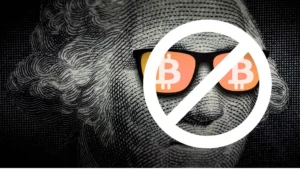In recent years, the buzz surrounding Bitcoin and other cryptocurrencies has been inescapable. As the world becomes increasingly digital, the status of Bitcoin as a legal or illegal tender has been a hot topic across the globe. To clarify, a country that has been under the spotlight in this discussion is Turkey. Of course, with a fluctuating economy and a tech-savvy population, the question on everyone’s mind is, ‘Is Bitcoin legal in Turkey?’ Therefore, this article aims to shed light on the crypto asset policy of Turkey. Moreover, we’ll provide a comprehensive analysis of the current legal status of Bitcoin and current applications.
Is Bitcoin Legal in Turkey? Did Turkey Banned Crypto Assets?
The Republic of Turkey has taken an official step regarding regulating Bitcoin and other crypto assets. To clarify, Turkish Central Bank issued the Regulation on Non-Usage of Crypto Assets in Payments on April 16th, 2021 (“Regulation”). Moreover, this Regulation entered into force on April 30th, 2021.
According to the Regulation, there are multiple aspects to define crypto assets. To clarify, the Regulation (Article 3) defines crypto assets as follows;
- intangible assets that are digitally issued with the distributed ledger technology or other similar technologies,
- which are distributed via digital networks,
- but are not qualified as fiat money, deposit money, electronic currency, payment instrument, securities, or capital market instrument.
Most importantly, Bitcoin and other crypto assets are legally defined in Turkey under the Regulation for the first time. We already explained the legality and scope of this regulation in our article “Did Turkey Ban Crypto Assets?”. Therefore, we will not get into more details about the so-called crypto-ban.
To sum up, there is no enforceable prohibition or punishment in Regulation for merchants and individuals. Also, it is completely legal to trade crypto assets in Turkish exchanges and to hold Bitcoin in your wallet. Therefore, Bitcoin and crypto assets are legal in Turkey. Yet, even with the Regulation defining what is a crypto asset; there are gray areas and discussions going on. We will delve into the gray areas and examples in life in this article.
Is Bitcoin Money in Turkey?
According to the regulation of the Central Bank, Bitcoin or other crypto assets are not money. To clarify, in Turkey’s legal system, they are neither fiat money nor electronic money for now. In fact, there is a legal definition for electronic money. According to that, an issuer must issue the electronic money, in return for fiat money. Likewise, according to the common opinions in German and Swiss doctrines, Bitcoin is not money as well.
Most importantly, there is no legal definition of money in Turkey. To clarify, of course, there are definitions in doctrine, but the law does not define it. Money as we know it today is actually the result of changes in daily trade life. So actually, it is natural for the payment system to change again. With better data security, international cheap transfer, and transaction security, Bitcoin has greater chance of becoming “money” of the future.
Is Bitcoin a Commodity in Turkey?
There is no proper definition of a “commodity” in Turkey’s law. However, considering the Regulation did not cross out the “commodity” option as it did to “security”; it is worth analyzing.
To clarify, there is no exact legal definition of commodities in Turkey’s law. Yet, commodities in general (gold, silver, oil, etc.) are described as “movable property” in the broader legal term. Therefore, we can check Article 762 of the Turkish Civil Code to see the definition of movable property: “The subject matter of movable property is movable tangible things and natural forces. Moreover, they are suitable for acquisition and are not included in the scope of immovable property.”
Currently, there is no legal definition for Bitcoin as a commodity in Turkey. Certainly, the definition of “movable property” does not particularly match Bitcoin’s qualities. Because it is an intangible asset. In short, for now, Bitcoin is not regarded as a commodity in Turkey.
In other words, the “movable asset” definition under Turkish Civil Code Article 762 doesn’t match the features of Bitcoin. On the other hand, a court of first instance has judged in the opposite direction. We will cover the decision below. Yet, this opposition between the law and the judicial body alone shows the different and hard-to-grasp nature of Bitcoin.
Bitcoin’s Legal Status According to Court Decisions
Bitcoin and crypto assets have a very popular place in Turkey’s daily life. Therefore, legal disputes that include crypto assets are taking place often. Because of the lack of proper current regulations in Turkey, judges are expected to be creative.
Crypto Asset Decision of Istanbul 24th Enforcement Court
At the end of an enforcement and seizure process, the Istanbul 24th Enforcement Court wanted to clarify how to sell and convert the seized crypto assets into money. To clarify, the court developed a new method for the creditor to receive the debt amount as fiat money.
The court ruled: “In terms of enforcement and bankruptcy law, in order for a good or right to be seized, it must express an economic value on its own, and it is for sure that this element exists for cryptocurrencies. However, in accordance with the ‘Regulation on the Non-Use of Crypto Assets in Payments’ published by the Central Bank of the Republic of Turkey, these cryptocurrencies are defined as ‘Intangible assets that are not qualified as fiat money, registered money, electronic money, payment instrument, security or other capital market instrument…’. In other words, although crypto assets have economic value, it is not possible to evaluate them as foreign currency. Therefore, the way these assets are converted into money must be done according to the movable property sales procedure.”
Contrary to the legal assessment we have made above, the court considered crypto-assets as “movable property”. In short, Turkish Civil Code states that movable properties are movable tangible things and natural forces. However, the court ruled that the seized crypto assets should be sold as movable property. Of course, it is important to note that this is only a court of first instance. In other words, it does not establish a final precedent for other court decisions.
Crypto Asset Decision of the Antalya Regional Court of Justice 6th Civil Law Chamber
In this case, the applicant lost his wife in a traffic accident. After that, he requested access to his wife’s iCloud account from Apple. Nevertheless, Apple requested a court order to grant access to the account. Afterward, the applicant referred to Denizli 4th Civil Court of Peace. However, the court rejected his request on the grounds of “privacy”. Following the rejection, the applicant appealed to the Antalya Regional Administrative Court, which issued a precedent-setting decision. To clarify, this decision added crypto assets to a broad legal term called “digital inheritance” in its decision.
The relevant part from the court decision dated 13/11/2020 and numbered 2020/1149 E. and 2020/905 K.
“Without prejudice to the exceptions stipulated in the law, the heirs shall directly acquire the in rem rights, receivables, other property rights, possession over movable and immovable property of the heir and shall be personally liable for the debts of the heir” is stated in Article 599/2 of the Turkish Civil Code, which is the form of the principles of inheritance.
Nowadays, it has been evaluated that there is no regulation on digital assets and digital inheritance in an environment where digital assets are an undeniable reality, there are digital systems called cryptocurrencies that have started to be used even in international payments, social media accounts that provide astronomical advertising revenues are increasing day by day … there is no regulation on digital assets and digital inheritance, and there is a legal gap in this regard.
Article 1 of the Turkish Civil Code No. 4721 reads as follows: “The law shall apply to all matters to which it deals in its wording and spirit.”
If there is no applicable provision in the law, the judge shall decide according to the customary law, and if this is not the case, the judge shall decide according to the rule he would have set if he were the legislator.”
It has been concluded that it will be necessary to determine the digital assets of the deceased, such as the deceased’s e-mail account and social media accounts, digital wallet accounts, etc., which express material value and which should be included in the estate and transferred to the heirs within the scope of Article 599 of the TMK.”
Why this decision is important?
It seems that the restrictive provisions of Turkish Civil Code did not prevent this Chamber from issuing an inclusive decision. The Chamber saw the loophole and included all digital assets in the estate. Moreover, the judges of the Chamber included crypto assets and digital wallets as well. They justified this action by citing Article 1 of the Turkish Civil Code. Certainly, they included the “digital property” term in the decision even if it’s not completely in accordance with the law.
Bitcoin and Crypto Asset Definition According to Turkey’s Tax Office
In the Turkish legal system, if there is no regulation on a tax-related issue, you can consult the Revenue Administration. Revenue Administration issues a private letter ruling (advanced ruling) about the matter. In fact, on September 23rd, 2020, the heirs of a deceased man applied to the tax office. To clarify, they asked if they could inherit their father’s Bitcoin, which is at a local exchange platform. Furthermore, they wanted to know, if yes, what would be the tax office’s policy.
Afterward, Edirne Tax Office issued an advance ruling (Directorate No. 60938891-120.01.02.09[GVK: 3-1]-33826) in response to the heirs’ inquiry.
The important part of the advanced ruling
“From the examination of your registered special request form and its annexes, it is stated that your spouse … passed away on 31 May 2019, and he was a user of … INC., which deals with the purchase, sale and transfer of Bitcoin over the internet, and that there are 0.02 TL and 0.40420899 Bitcoin, the total value of the said Bitcoin asset in the account at the date of death was 20.540,30 TL, and it is understood that you have requested that the payment of the value of the said asset to the heirs be evaluated in terms of inheritance and transfer tax.
… Accordingly, in the transfer of the money and bonds held by the institutions and organizations listed in Article 17 to the heirs, first of all, a certification that the tax has been paid should be requested, … the situation should be notified to the tax office.”
What does this advanced ruling tell us?
In conclusion, we see that the Revenue Administration, without hesitation, put Bitcoin in the same category as money and bonds. Moreover, they subjected it to inheritance and transfer tax. Of course, this alone does not mean that Bitcoin is money under Turkish law. However, certainly, the tax office does not engage in deep legal examinations when there is a tax to be collected. Here, the Revenue Administration subjects Bitcoin to the same procedures that they apply to money and bonds. This assessment is important since there is no law yet.
Is Bitcoin Payments Legal in Turkey? And What about Crypto Asset Payments?
Article 3/2 of the Regulation states that “You cannot use crypto assets, directly or indirectly in payments.”. However, the truth is that there is no penalty. To clarify, there is no penalty for individuals and merchants who accept Bitcoin and in return for goods and services. Similarly, it is the same for crypto asset payments as well. This is because it is not within the authority of Turkey’s central bank. In other words, Central Bank does not have authority to tell individuals what to accept as payment.
On the other hand, Turkey’s central bank can penalize electronic money institutions, payment institutions and banks. Central Bank has the authority over these institutions that provide services for the direct or indirect use of Bitcoin and crypto assets in payments. Certainly, this is a difficult distinction to understand at first glance, but an important one. To clarify, there is no limitation for anyone but banks, payment institutions and electronic money institutions. From now on, if you want to send money to a crypto exchange platform, you must do it via banks. For instance, you can’t send money to BTC Turk via Ininal. However, even if you do, it is Ininal who will be punished, not you. In short, if two people agree upon a payment and service trade in Bitcoin, Central Bank can not interfere.
We asked the Central Bank: Is Bitcoin Legal in Turkey, What is the Punishment?
We contacted the Central Bank to ask what happens if an individual accepts Bitcoin in return for services. According to the Turkish Constitution, you can only impose a penalty by passing a law. In other words, there can’t be a punishment for everyone with a regulation of Central Bank. That is because regulations are hierarchically lower than laws. Moreover, the government has to pass a law for all crimes and punishments. Because we have the principle of legality of the crimes and punishment. Therefore, you can’t commit a crime for an action that is not defined as a crime by law. Likewise, you can’t get punished for such an action.
In short, a Central Bank Regulation can’t punish all individuals, merchants and companies. Therefore, we also asked the Central Bank about this. Of course, in their answer, they couldn’t point to a penalty for everyone who accepts Bitcoin as payment.
As a Conclusion: Is Bitcoin Legal in Turkey?
To answer the pressing question, “Is Bitcoin legal in Turkey?”—Yes, according to the current Regulation, Bitcoin and other crypto assets are legal. However, this doesn’t offer a comprehensive or entirely clear picture of Bitcoin’s standing in Turkey’s legal landscape.
To sum up, there is no inclusive law that defines Bitcoin and other crypto assets. Most importantly, Bitcoin is not illegal in Turkey. In fact, it is widespread among Turkish citizens to use and invest in Bitcoin and other crypto assets. Thus, though there is no governing law, there are decisions of courts and revenue administration, due to common practice.
The legal status of Bitcoin and crypto assets in Turkey remains in a gray zone on several fronts. On one hand, Bitcoin is not “money” or a “security” according to the Regulation. On the other hand, court decisions, often deviate from this rigid framework. Most importantly, courts are adapting to the evolving reality of digital assets in modern life. The judiciary authorities are indirectly approaching Bitcoin as it is a “movable asset”. Of course this brings the question “Will the next step be accepting Bitcoin as a commodity in Turkish law?”.
Similarly, Turkey’s tax office places Bitcoin in the same category as ‘money and bonds’ for taxation purposes. Certainly, this adds another layer of ambiguity to the question “Is crypto legal in Turkey?”. Lastly, while individuals can freely engage in Bitcoin transactions without penalties, financial institutions are restricted from facilitating such transactions.
In short, the current situation points to a critical need for more robust legislation that comprehensively addresses these gray areas. It is crucial for Turkey to either amend existing laws or create new ones that adapt to the changing dynamics of cryptocurrencies. Until then, we can affirmatively say that Bitcoin is legal in Turkey.

Related Videos
Related Articles
We are always happy to hear from you!
info@turkfortune.com
Phone:
+90(546) 577 73 18
Addresses:
Büyükdere Cad, Mecidiyeköy Mah. No:81 Kuğu İş Merkezi Floor:4 No:7, Şişli/İSTANBUL
Mansuroğlu Mah. 286/1 Sk. No:1 Floor: 2 Office: 217 Bayraklı/İZMİR


















